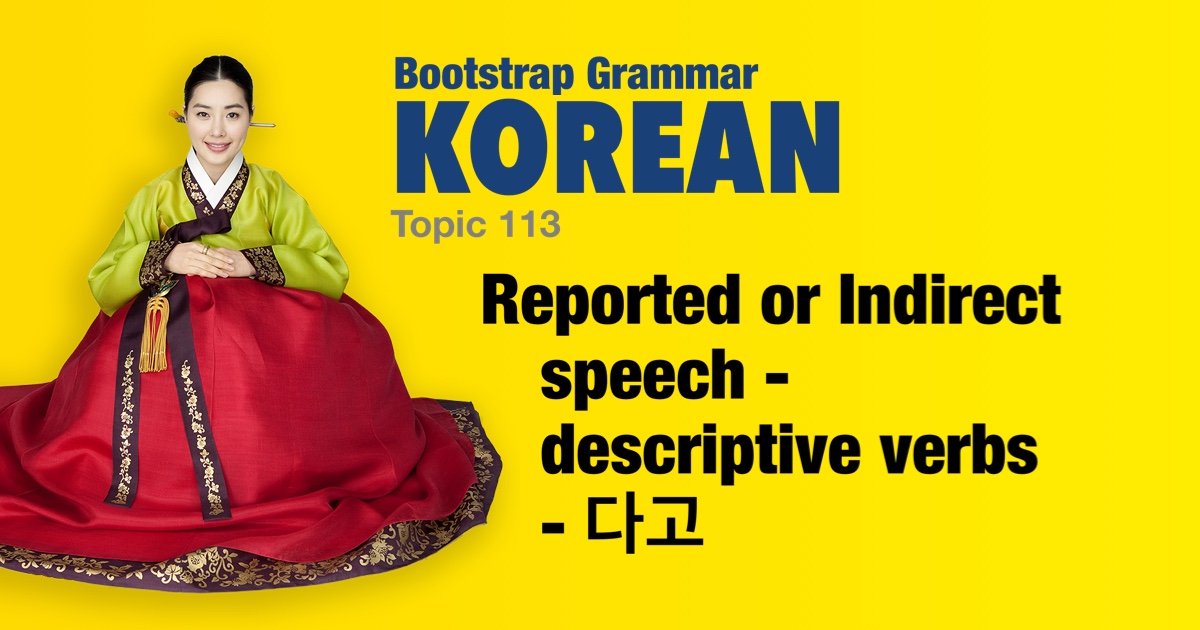Korean grammar - Reported or Indirect speech - descriptive verbs - 다고 |
|||
|
|||
Pattern: Descriptive Verb stem + 다고 Reported or indirect speech with descriptive verbs omits the ㄴ/는 from the pattern leaving Verb stem + 다고. Recall that the verbs 있다 and 없다 are considered descriptive verbs. A past tense form can also be constructed by using the past base in place of the Verb stem. |
| Examples: | |
|
이 영화는 재미있다고 들었어요.
(I) heard this movie is fun. |
|
|
저는 그 여자가 별로 안 예쁘다고 생각해요.
I think that girl isn’t that pretty. |
|
|
저는 학교에 갈 수 없다고 했어요.
I said I can’t go to school. |
|
|
학생이 이해할 수 없다고 했어요.
The student said he can’t understand. |
|
|
그는 다음 주 토요일에 여행할 수 있다고 했어요.
He said that he will be able to travel next Saturday. |
|
|
제가 현금이 없다고 해서 우리는 현금 인출기에 갔어요.
I said that (I) don’t have cash, so we went to the ATM.
|
|
|
아무데나 괜찮다고 했어요.
(I) said anywhere is fine. |
|
|
매우 행복하다고 했어요.
(They) said (they) are very happy. |
|
|
그는 김치가 맛있다고 했는데, 저는 그것이 너무 짜다고 생각해요.
He said the kimchi was delicious - I think it's too salty. |
|
|
그는 형제가 없다고 말했어요.
He said that (he) does not have any older brothers. |
|
|
그는 신발이 너무 작다고 말했어요.
He said that the shoes are too small. |
|
|
의사가 수술을 할 수 있다고 말했어요.
The doctor said (he/she) can do the surgery. |
|
|
저는 오늘 수영장에 갈 수 없다고 했어요.
I said (I) cannot go to the swimming pool today. |
|
|
저는 남자친구에게 같이 하고 싶은 것이 있다고 했어요.
I told (my) boyfriend that there is something (I) want to do together. |
|
|
제 노트북을 팔고 싶다고 했어요.
I said (I) want to sell my laptop.
|
|
|
일기 예보에서 내일 덥다고 보도했어요.
The weather forecast reported that it will be hot tomorrow.
|
|
|
민우 씨가 저에게 정말 아름답다고 했어요.
Ms Minwoo told me that I was really beautiful. |
|
|
이 드라마가 너무 유명하다고 했어요.
(It is) said that this drama was very popular.
|
|
|
광일이는 다섯 살 때 키가 작았다고 했어요.
Gwangil said that (he) was short when (he) was five years old.
|
|
 |
|




